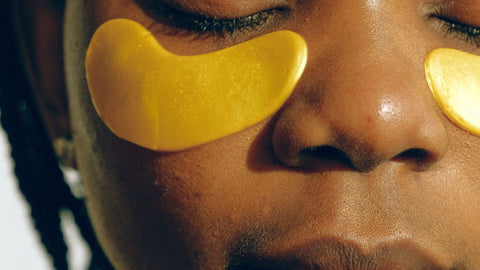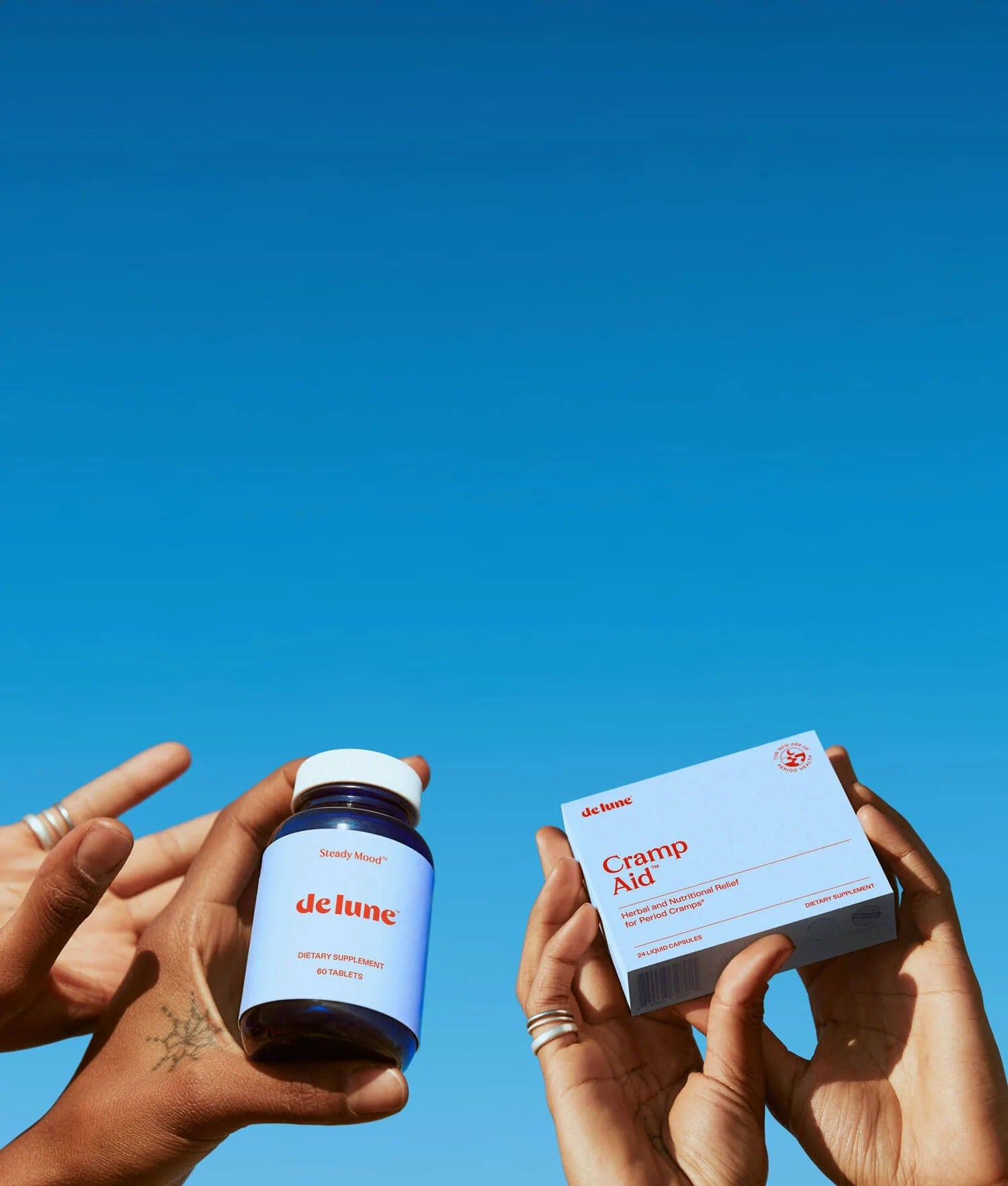When we think about bringing nutrients or herbs into our bodies, we normally think about taking them as pills, capsules, powders, or eating them as food. All of these methods have something in common: they all use the digestive system as the means of getting nutrition into the bloodstream.
However, we’re noticing more and more companies trying to disrupt the digestive paradigm, and bypass the gut by applying substances intended for the inside of the body directly to the skin as a transdermal patch—with supposedly the same results in absorption.
Many of these patches claim to help with period problems like cramps and PMS, and we had to investigate to know if they’re for real.
This article explains:
- What a transdermal patch is
- Which types of patches are helpful for period problems, and which are not
- Why transdermal patches are limited in their ability to effectively relieve period problems
What is a transdermal patch?
A transdermal patch is an adhesive patch with an active substance on it, like an herb, nutrient, or medication. The patch attaches to your skin, so that the substance on the patch can be absorbed into your body over time.
Transdermal patches are different from heat patches, which use particles that react when exposed to air. The reaction gives off heat that warms the skin under the patch, rather than infuse the skin with any active substance. These types of patches are called thermotherapy, or heat therapy. Heat therapy won’t stop period cramps from happening, but it can soothe the pain until they go away on their own.
Transdermal patches are also different from hydrocolloid patches, which pull pus, oil, and other impurities out of the skin. These types of patches can be helpful for drying out shallow pimples near the skin’s surface. They may also be medicated with active ingredients that speed healing or prevent future acne, but these ingredients are meant to work locally on the skin’s surface; don’t expect them to enter your bloodstream.

While drugs like nicotine, birth control, and blood pressure medication are commonly administered as transdermal patches, not all substances can enter the bloodstream as a patch. In order for a substance to be absorbed through the skin and enter the bloodstream, it must meet two criteria:
- It must be fat-soluble, or able to freely dissolve in fat. Being fat soluble is important because the skin has layers of fat that a substance must cross before it reaches the bloodstream and can be transported throughout the body.
- It must have very, very small molecules—small enough to fit through the tiny pores of the surface of the skin.
Unfortunately, many of the ingredients found in commercially-available transdermal patches are neither fat-soluble nor made of very small molecules, so little if any is absorbed into the bloodstream.

Do transdermal patches work for period problems?
The skin is designed to be a fairly impenetrable barrier. And for good reason: if everything that touched our skin—the hand sanitizer, cleaning detergents, and engine exhaust—ended up in our bloodstream, our bodies would be flooded with toxins.
Thankfully, skin is made of three tough outer layers—the epidermis, dermis, and subcutis—that each serve as a protective boundary and defend our vulnerable insides from environmental influences. This allows us to freely slather on mineral-based sunscreen without developing zinc toxicity, for example.
Because the skin is designed to protect rather than absorb, transdermal patches are not effective for relieving period problems. Specifically:
Fat solubility is needed to cross the fatty skin layers and enter the blood. B vitamins, especially vitamin B1 and vitamin B6, have some of the best scientific evidence for safely and effectively relieving period pain and PMS, respectively. All B vitamins are water soluble rather than fat soluble.
The most important minerals for period health won’t fit through the skin’s pores.
Minerals that are critical to period health like zinc and magnesium are too bulky to be absorbed through the skin. While the skin is designed to protect, the gastrointestinal tract is designed to absorb. The gut is lined with special skin that is able to absorb far more than regular skin can, so the only way to meet your body’s mineral needs is to eat them as food or ingest them as supplements.
Clinical studies show you need quite a bit of certain vitamins, minerals, and herbs to effectively relieve period pain and PMS. Not only are absorption rates of these substances dismal when administered via transdermal patch, transdermal patches are also limited in the dose they can provide by what physically fits on the patch. So you’re offered less therapeutic benefit to begin with, and absorbing very little of it.
Although research has found heat patches useful for temporarily soothing period cramps, no data suggests transdermal patches can deliver enough active ingredients through the skin to do the same. Period cramps are caused by the natural build-up of inflammatory compounds in the uterus. Therefore, a formula that can quickly and potently deliver a therapeutic amount of anti-inflammatory compounds to the uterus is needed to effectively reduce period pain. The only way to deliver healing ingredients to the uterus is to get them into the bloodstream in sufficient amounts. Currently, the research supports doing so with supplements in tablet, capsule, powder, or liquid form, not with transdermal patches.
Why De Lune is more effective at relieving period problems than transdermal patches
Certain nutrients and botanicals, such as zinc, magnesium, ginger, fenugreek, and vitamins B1 and B6, have been shown in clinical studies to be very effective for menstrual pain and PMS when taken orally as supplements.
That’s why De Lune’s solutions for cramps and PMS are high-potency capsules and tablets. Cramp Aid and Steady Mood deliver therapeutic doses (whenever possible, the exact same doses shown to work in clinical studies) of the most effective, research-backed ingredients for period problems in the most efficient way possible—through the gut, not through the skin. So you can be sure enough healing ingredients are actually being absorbed into your blood, reaching your reproductive system, and improving your menstrual health.








